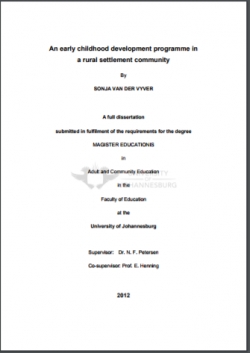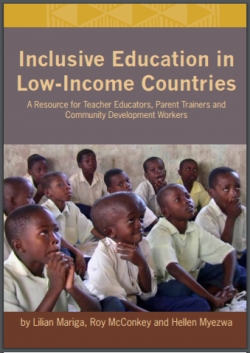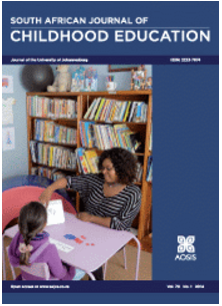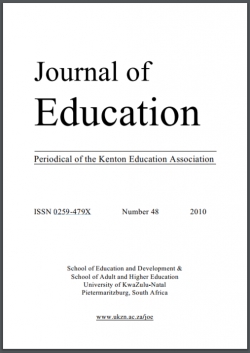Early communication development: parenting beliefs and practices in a rural context
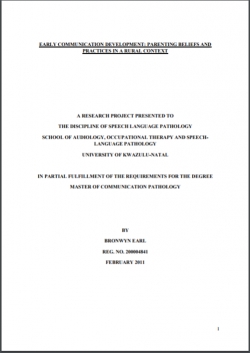
Type
Thesis
Authors
Category
ECCE
[ Browse Items ]
Publication Year
2011
Publisher
University of KwaZulu-Natal, Westville, South Africa
URL
[ private ]
Pages
165 p.
Subject
Early childhood education, Primary education, Foundation phase, Rural communities, Young children, Infants, Caregivers, Parental beliefs, Practices, Communication, Indigenous knowledge, South Africa
Tags
Abstract
Many children in the foundation phase in rural schools in KwaZulu-Natal, South Africa struggle to acquire early literacy skills. A review of the literature demonstrates the link between early communication development and academic achievement, including literacy skills (Rossetti, 2001). This study explored the beliefs and practices of caregivers regarding early communication development as a means to providing culturally appropriate early communication intervention. The study drew on phenomenological and interpretive viewpoints to inform the qualitative design. Fifteen caregivers with healthy infants in the age range of 0-12 months were recruited from a postnatal clinic in Inanda, a rural community in KwaZulu-Natal. The study took place in three phases. Phase 1) Nine of the participants were divided between two focus groups. Focus groups used photo elicitation as a method of stimulating discussion on subjects relevant to the topic. Phase 2) Data from the focus groups was used to inform the development of an individual guided interview schedule. One participant took part in a pilot study of an individual interview. Phase 3) The remaining five caregivers participated in individual guided interviews. Data obtained through both focus groups and individual interviews were analyzed for themes using Creswell's Data Analysis Spiral (1998). Five themes were identified as falling within the two study objectives: Parenting beliefs and parenting practices. The themes under parenting beliefs included: the role of the parent; needs and abilities of the infant and communication. Themes included under parenting practices were: daily activities and language stimulation. The results show that caregivers' beliefs are guided by the desire for their infants to be accepted by community members, thus prioritizing issues of respect and observable health as their parenting goals. Caregivers' daily activities facilitate the development of the maternal bond which serves as the foundation for the development of communication and provides language stimulation. These practices are however noted to be intuitive and lack a formal knowledge base. Practice and research implications for these findings are discussed.
Description
Thesis (MSc)--University of KwaZulu-Natal, Westville, 2011.
Number of Copies
1
| Library | Accession No | Call No | Copy No | Edition | Location | Availability |
|---|---|---|---|---|---|---|
| Main | 120 | 1 | Yes |
